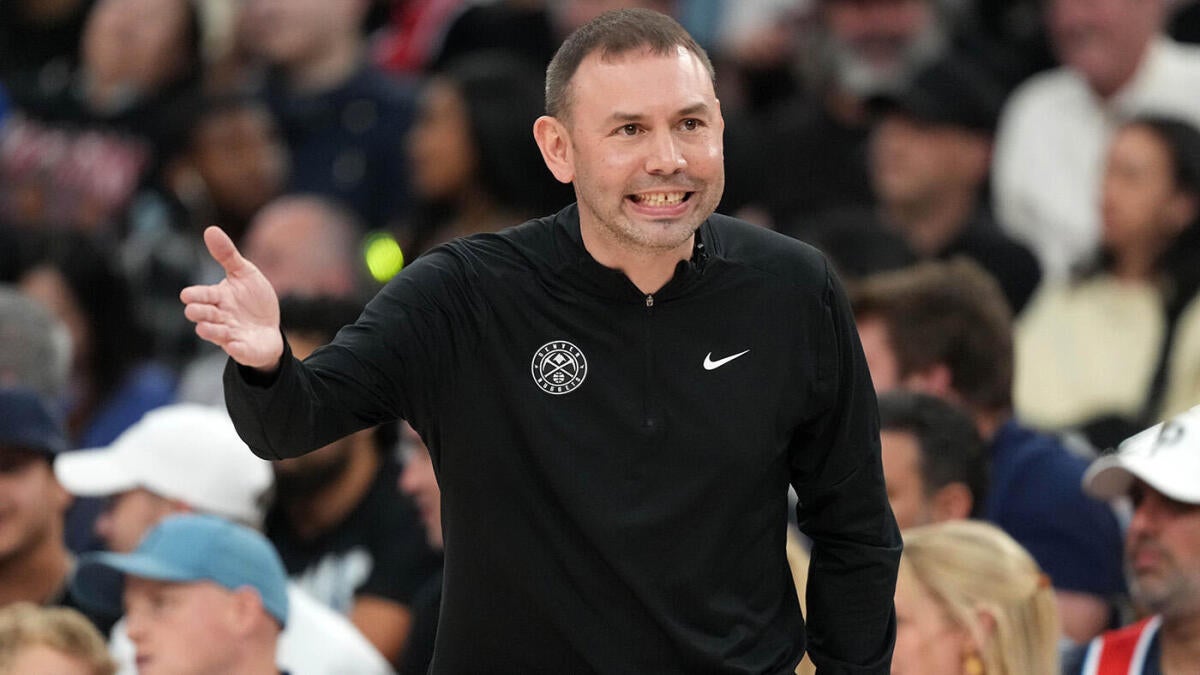The Impact of Officiating on Game 6
The NBA playoffs are a crucible of intensity, where every decision made by referees can alter the course of a game. Game 6 between the Denver Nuggets and the Los Angeles Clippers was a stark example of this, with Nuggets coach David Adelman voicing his discontent over perceived officiating biases. This incident sheds light on broader issues within the NBA, particularly the impact of officiating on player performance and team strategy.
The Heart of the Issue: Lack of Foul Calls
Adelman’s frustration stemmed from the physical defense employed by the Clippers, particularly against Nikola Jokić. The Clippers’ strategy involved assigning smaller defenders to Jokić and engaging in a highly physical game to disrupt his rhythm. According to ESPN Stats and Info, Jokić shot 5-for-14 with Ivica Zubac as his primary defender. Adelman believed this defense was overly physical and that the referees should have called more fouls.
The lack of foul calls is a critical issue because it can impede a player’s ability to perform optimally. Jokić, a three-time MVP, is renowned for his exceptional court vision and passing ability. Physical defense can disrupt his game, making it harder for him to execute his plays effectively. This issue extends beyond Jokić; it touches on the fairness of the game and ensures that players are not unduly hindered by unpunished physical play.
Broader Implications for the Game
The officiating in Game 6 raises questions about consistency and fairness in the NBA. If referees are not calling fouls consistently, it can create an uneven playing field. Teams that rely on physical defense might gain an unfair advantage, while teams that rely on skill and strategy might be at a disadvantage. This inconsistency can also affect player safety, as unchecked physical play can lead to injuries.
Moreover, the lack of foul calls can impact team morale and strategy. For the Nuggets, the frustration over the lack of calls might have affected their performance in Game 6. It can also influence their approach to Game 7, where they will need to be more proactive in seeking foul calls and protecting their star player.
The Role of the Coach: David Adelman’s Perspective
Adelman’s criticism is not just about the past; it’s about the future. He understands that Jokić might need to help himself more in Game 7 if the officiating does not improve. This means Jokić might need to be more assertive in drawing fouls, using his size and strength to his advantage, and being more vocal with the referees.
Adelman’s comments also underscore the importance of coaching in high-pressure situations. As an interim coach, Adelman has had to navigate the complexities of the playoffs, managing player workloads and dealing with officiating issues. His criticism of the referees is a call for fairness and consistency, but it’s also a strategic move to rally his team and prepare them for the challenges ahead.
The Impact on Player Performance
The lack of foul calls can significantly affect a player’s performance. For Jokić, it means he has to work harder to get open shots and make plays. It also means he has to be more aware of the physical defense and adjust his game accordingly. This can be mentally and physically taxing, especially in a high-stakes game like Game 7.
For other players on the team, the lack of calls can affect their confidence and morale. If they see their star player being physically hindered without recourse, it can demotivate them and affect their performance. This is why Adelman’s criticism is so important; it’s a call for fairness and consistency, but it’s also a call for his team to stay focused and motivated.
Looking Ahead: Game 7 and Beyond
As the Nuggets prepare for Game 7, they will need to be more proactive in seeking foul calls and protecting their star player. This means Jokić might need to be more assertive in drawing fouls, using his size and strength to his advantage, and being more vocal with the referees. It also means the team needs to stay focused and motivated, despite the frustrations of the past game.
For the NBA, this incident highlights the need for consistency and fairness in officiating. If referees are not calling fouls consistently, it can create an uneven playing field and affect player safety. The league needs to address these issues to ensure that the game is fair and that players are protected.
Conclusion: A Call for Fairness and Consistency
The criticism from David Adelman over the lack of foul calls in Game 6 is a call for fairness and consistency in the NBA. It’s a reminder that every call, every foul, and every decision can impact the outcome of a game. As the Nuggets prepare for Game 7, they will need to be more proactive in seeking foul calls and protecting their star player. For the NBA, this incident highlights the need for consistent and fair officiating to ensure that the game is played on a level field. The stakes are high, and the call for fairness and consistency is more important than ever.

